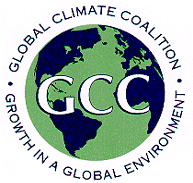New GCC documents reveal how the coalition took advantage of their seat at the table during the UNFCCC process and sought to influence Intergovernmental Panel on Climate Change (IPCC) reports.

After the 1992 Earth Summit, the GCC’s principal objective was to slow down the UN Framework Convention on Climate Change (UNFCCC). New GCC documents reveal how the coalition took advantage of their seat at the table during the UNFCCC process and sought to influence Intergovernmental Panel on Climate Change (IPCC) reports. The GCC infiltrated the process and informed industry allies about the latest scientific findings, the same information they used to craft the next volley of denial. A previously unknown “IPCC Tracker budget” garnered 30 percent of total committee expenditures, two-and-a-half times larger than the average GCC committee’s funds, during 1994, 1995, and 1996 (the only tax records we have acquired thus far).
The GCC used these funds to aggressively track and attack the IPCC, its peer review process, and its underlying models. While critical of its goals, the GCC remained keen on UNFCCC and IPCC developments, sending delegations of more than 20 people to the COP meetings, hiring independent contractors to listen in their stead, and distributing their staff and members to other business-friendly NGOs – forming one coordinated coalition bearing many different names.
For instance, at the Second Conference of Parties (COP-2) in 1996, the GCC sent twenty-eight delegates, representing ten member companies from the automotive, utility, manufacturing, petroleum, and mining industries. At the same COP, seventeen representatives of GCC member companies like Dow Chemical, BP, and Duke Power (now Duke Energy) participated in the COP wearing badge credentials of eight additional organizations. Further, none of the three GCC STAC members attending COP-2 disclosed their GCC affiliation, opting instead to wear badges of The Climate Council or the Organisation Internationale des Constructeurs D’Auotomobiles, for instance. That totals forty-five representatives with ties to GCC present at COP-2, more than two times the typical COP delegation from any one developing country (usually ranging from one to twenty members).
After COP-2, documents show the same representatives who registered with different organizations regrouping, sharing notes, determining their impact, previewing unreleased documents, and drafting language for their own organizations and to submit as input to the IPCC.
The GCC engaged with the IPCC in bad faith, highlighting findings that validated the positions and interests of their member corporations and omitting those that did not.
The GCC engaged with the IPCC in bad faith, highlighting findings that validated the positions and interests of their member corporations and omitting those that did not. At the same IPCC Mexico meeting where GCC language was officially adopted in an IPCC Technical Paper, a draft STAC memo shows the GCC targeting language for future IPCC reports; in the memo, handwritten notes suggested that the “high degree of [political] inequity” in addressing climate change for vulnerable regions of the world, “should be deleted.”
Additionally, the GCC and allies launched a sustained campaign against the IPCC Summary for Policymakers document that accompanies each IPCC report. An internal STAC document explains, “the ‘Peer Review’ statement helps makes [sic] the case for quoting from the underlying [IPCC] documents, which reflect the end result of a rigorous peer review versus the Summaries for Policymakers which reflect the end result of a government negotiation.” (emphasis added).
Simultaneously, demonstrated in previously unreleased documents, the GCC coordinated an aggressive attack on the IPCC process – erroneously targeting scientist Ben Santer through direct communications and public-facing editorials. The GCC widely distributed a memo to media outlets titled, “The IPCC: Institutionalized ‘Scientific Cleansing.’” The memo argued that edits were made, “rais[ing] very serious questions about whether the IPCC has compromised, or even lost, its scientific integrity.”
Following the distribution of the GCC’s memo, Energy Daily, the Washington Times, and The Wall Street Journal amplified the GCC’s message. Coal-funded GCC member Western Fuels Association also cited the memo in “Bait and Switch? IPCC pares down the consensus.” The GCC’s rhetoric gained mainstream coverage, in their own words, “[o]n at least the issue that has received more media and public attention than any other, [IPCC’s] published report on the science of potential global climate change defies both the letter and the spirit of the IPCC’s Rules governing its reports.” The GCC threatened that if the IPCC didn’t re-publish the report, “IPCC’s credibility will have been lost.”
In response, Santer and other prominent scientists penned open letters and op-eds rebutting the GCC’s allegations. The American Meteorological Society (AMS), for instance, wrote “to support [Santer] and the other scientists who participated in the preparation of the recent IPCC report.” AMS warned of a, “concerted and systematic effort by some individuals to undermine and discredit the scientific process,” engaging in an opinion-based media campaign – conduct that has, “no place in the scientific debate about issues related to global climate change.”
In a separate letter, Chairman of the IPCC Bert Bolin also supported Santer unwaveringly. Identifying GCC’s Executive Director John Shlaes and Climate Council’s Don Pearlman as those “who have initiated these attacks on the IPCC,” Bolin rebuked the GCC and its allied dissidents clearly: “I wish to state very clearly that the allegations are completely unjustified.”
Return to Global Climate Coalition main page.
View and download the full report: Global Climate Coalition: Big Business Funds Climate Change Denial and Regulatory Delay.
